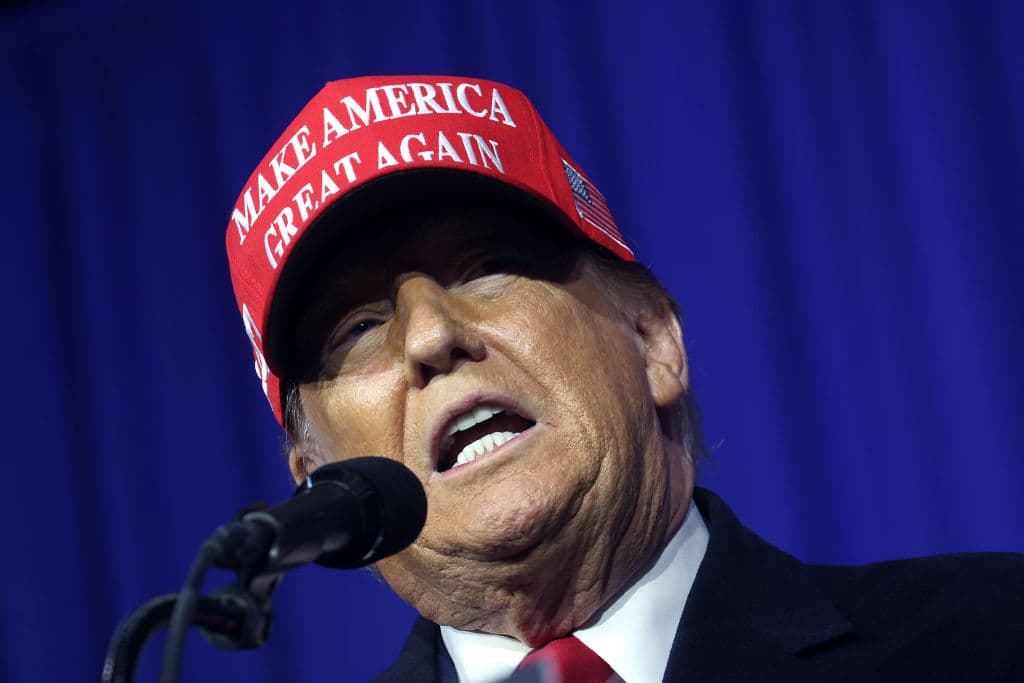Trump’s Rare Loss Before Judge Cannon Suggests Jack Smith’s Threats To Go Over Her Head Could Be Working
The special counsel, in threatening to seek appellate review — and, possibly, to pursue removal — could be making the jurist think twice about delaying Trump’s trial.

President Trump could soon discover whether his criminal trial for hoarding classified documents at Mar-a-Lago will fade into the mists of indefinite delay or instead keep him pinned to a South Florida courtroom just as the general election campaign gains steam.
The stakes for a filing deadline on Wednesday, imposed by Judge Aileen Cannon, grew when the jurist last week rebuffed Mr. Trump’s request to push off that due date in the classified documents case, which many legal observers think is the strongest criminal case against Mr. Trump, should it get before a jury prior to the election.
Judge Cannon ordered that the “deadline to file pre-trial motions … remains February 22, 2024.” It was a rare loss for the 45th president before Judge Cannon, who since the case’s infancy has shown solicitude to Mr. Trump’s positions, especially when compared to the other judges on the Trump docket, whose rulings have favored the prosecutions.
If the tide is turning regarding Judge Cannon, though, it could be because Special Counsel Jack Smith, who is prosecuting the case, is increasingly telegraphing his indignation over her rulings and his willingness to go over her head. In his last dispatch to her court, he took the extraordinary step of urging her to reconsider a ruling mandating the disclosure of the names of key witnesses in the case.
Mr. Smith’s argument on that issue was larded with references to the 11th Circuit, which can overturn Judge Cannon. Trial court judges rarely appreciate being overruled, and she no doubt recalls that at an earlier stage in the case, the Circuit knocked down, with caustic and impatient language, her imposition of a special master, or outside expert, to supervise the government’s handling of classified documents.
More radical developments than mere reversal are possible. Mr. Smith could seek a writ of mandamus from the 11th Circuit to order Judge Cannon, say, to schedule a trial date or otherwise handle the disposition of classified documents. If she persists, and if the appellate riders rule she made a clear error, he could take that as an opportunity to request that she be removed from the case.
Judge Cannon did leave the 45th president some wiggle room, allowing for later submission of documents if he can demonstrate “a particularized and timely showing that events post-dating February 22, 2024, clearly justify additional pre-trial briefing.” If she had moved the deadline entirely, the May 20 trial date would likely have been rendered inoperative.
Earlier this month, Mr. Trump’s attorneys wrote that they “plan to file on February 22, at minimum, a series of motions to dismiss the Superseding Indictment and certain of the charges therein.” They added that they are “still evaluating potential motions,” which could comprise claims of selective and vindictive prosecution, and offshoots of the presidential immunity claims now before the Supreme Court with respect to the January 6 prosecution.
All of those motions are subject to immediate, or interlocutory, appeal. That means that the United States Circuit Court for the 11th Circuit, which oversees Judge Cannon, could soon be called in to review her rulings. That could be why the district court judge, whose alleged sympathy to Mr. Trump is often decried by his antagonists, appears to be proceeding with caution with respect to the scheduling of Mr. Trump’s trial.
Judge Cannon’s emerging approach appears to consist of provisionally supporting the deadlines she has already set in the case while also allowing for the possibility of flexibility depending on how circumstances “evolve.” Last week, she declined a request from Mr. Trump to delay the trial but also allowed for the possibility of further adjustment, citing the “evolving complexities in this matter.”
Mr. Smith’s position is that Mr. Trump “will stop at nothing to stall the adjudication of the charges against [him and his co-defendants] by a fair and impartial jury of citizens.” The special counsel argues that there is a “compelling interest” in Mr. Trump being tried before the election, where he is the frontrunner for the Republican nomination. The former president, though, argues that his two federal prosecutions, ultimately overseen by President Biden, amount to the pursuit of politics by other means.

